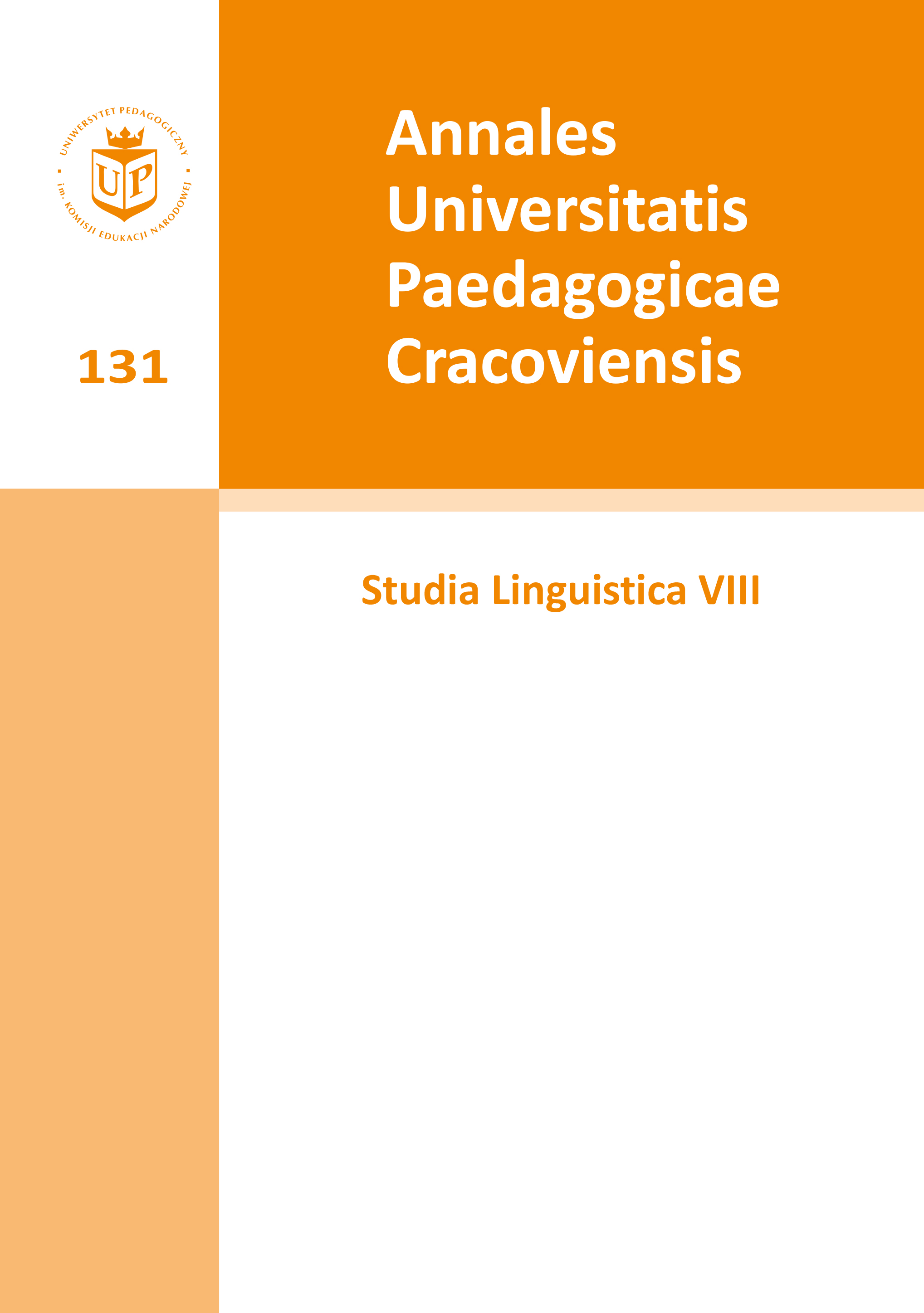Co może być największym zagrożeniem dla polszczyzny następnych pokoleń? Jak przeciwstawiać się deprecjacji języka polskiego?
Main Article Content
Abstract
With regard to the issues discussed during the debate on The Polish Language of Four Generations that took place on 21st February 2012 in the Presidential Residence, the author tries to indicate the problems that the Commission for Names of Places and Physiographic Objects keeps facing in their works (proper names found in the belles-lettres are also prone to depreciation). The main problems result from the willingness to acquiesce traditional usage with the rules of standard Polish. The lack of financial subsidy for the work of the members of the Commission has a negative effect on the preparation of the next issue of the Official List of Place Names in Poland.
Downloads
Article Details

This work is licensed under a Creative Commons Attribution-NonCommercial-NoDerivatives 4.0 International License.
Author, submitting a text to the editorial board of the journal “Annales Universitatis Paedagogicae Cracoviensis. Studia Linguistica", certifies that the content of the article has not been published so far and that the work does not violate in any way the copyright or related rights of other person, as well as other rights of third parties, and that no one's rights to the work (or any part thereof) have been missed. After signing the contract, the property rights to the published materials are transferred to the University of the National Education Commission, Krakow.
“Annales Universitatis Paedagogicae Cracoviensis. Studia Linguistica” is an open access journal, and all its content is made available free of charge to users and institutions under the Creative Commons CC-BY-NC-ND 4.0 license (attribution, non-commercial use, no derivative works). Under this license, the authors agree that their work may be lawfully reused for any purpose, except for commercial purposes, without the prior consent of the author or publisher. Everyone can read, download, copy, print, distribute and process these works, provided that the author's marking and the original publication place are correct. Published texts may not be used to create derivative works (e.g. to translate and publish in another language without the consent of the publisher). This is in line with the BOAI (Budapest Open Access Initiative) definition. "Studia Linguistica" does not charge for submitting or processing articles.
References
Bańkowski A., 1982, Zmiany morfemiczne w toponimii polskiej, Wrocław – Warszawa – Kraków.
Google Scholar
Bocheński J., 2012, Debata: Polszczyzna czterech pokoleń, Forum Debaty Publicznej Twórczość, dziedzictwo kulturowe i przyrodnicze bogactwem Polski. Za Forum Debaty Publicznej w powyższym obszarze tematycznym odpowiada Podsekretarz Stanu w Kancelarii Prezydenta RP Pan Maciej Klimczak, s. 13–15.
Google Scholar
Cieślikowa A., 2005, Przyczyny zmian w nazewnictwie dawniej i dziś, [w:] Z najnowszych tendencji w polskim nazewnictwie, red. R. Łobodzińska, Łask, s. 21–31.
Google Scholar
Cieślikowa A., 2007, Zmiany gramatyczne i leksykalne współczesnych nazw miejscowych, [w:] Księga jubileuszowa Jerzego Podrackiego. Na językoznawczych ścieżkach, red. A. Mikołajczuk, R. Pawelec, Warszawa, s. 84–88.
Google Scholar
Malec M., 1994, Imiona chrześcijańskie w średniowiecznej Polsce, Kraków.
Google Scholar
Malec M., 2001, Imię w polskiej antroponimii i kulturze, Kraków.
Google Scholar
Malec M., 2003, Słownik etymologiczny nazw geograficznych Polski, Warszawa.
Google Scholar
Mały słownik odmiany nazw własnych, 2008, red. A. Cieślikowa, Warszawa.
Google Scholar
Ożóg K., 2010, Współczesne relacje między językiem polskim a kulturą, [w:] Przeobrażenia w języku i komunikacji medialnej na przełomie XX i XXI wieku, red. M. Karwatowska, A. Siwiec, Lublin, s. 121–131.
Google Scholar
Pisarek W., 2012, Cztery w jednym, Forum Debaty Publicznej Twórczość, dziedzictwo kulturowe i przyrodnicze bogactwem Polski. Za Forum Debaty Publicznej w powyższym obszarze tematycznym odpowiada Podsekretarz Stanu w Kancelarii Prezydenta RP Pan Maciej Klimczak, s. 23–28.
Google Scholar
Polski słownik biograficzny, 1935 i nast., Kraków.
Google Scholar
Rymut K., 1992–1994, wyd., Słownik nazwisk współcześnie w Polsce używanych, t. 1–10, Kraków.
Google Scholar
Rzetelska-Feleszko E., 1994, „Nazwy do poprawki”, czyli o pracach Komisji Ustalania Nazw Miejscowych, [w:] Polszczyzna a/i Polacy u schyłku XX wieku, red. K. Handke, H. Dalewska-Greń, Warszawa, s. 199–210.
Google Scholar
Skowronek K., 2001, Współczesne nazwisko polskie. Studium statystyczno-kognitywne, Kraków.
Google Scholar
Słownik geograficzny Królestwa Polskiego i innych krajów słowiańskich, Warszawa 1880-1902, red. F. Sulimierski, B. Chlebowski, W. Walewski, t. 1–15.
Google Scholar
Tokarczuk O., 2009, Bieguni, Kraków.
Google Scholar
Ustawa o mniejszościach narodowych i etnicznych oraz języku regionalnym z 6 stycznia 2005 roku.
Google Scholar
Ustawa o urzędowych nazwach miejscowości i obiektów fizjograficznych z 29 sierpnia 2003 roku.
Google Scholar
Walczak B., 2000, Nazwy firmowe: propria czy appellativa?, [w:] Onomastyka polska a nowe kierunki językoznawcze, red. M. Czachorowska, Ł.M. Szewczyk, Bydgoszcz, s. 113–122.
Google Scholar
Wykaz urzędowych nazw miejscowości w Polsce, 1980–1982, t. 1–3, Warszawa.
Google Scholar
